How CRM Software Can Help with Customer Data Security
Customer data security is a paramount concern for businesses of all sizes. With the increasing amount of sensitive information being collected, stored, and shared, maintaining the confidentiality, integrity, and availability of this data has never been more critical. Customer Relationship Management (CRM) software has evolved to address these concerns, offering a range of features and capabilities that can significantly enhance the security of customer data. This article delves into how CRM software can help you secure customer information, highlighting various tools, strategies, and best practices.
Understanding CRM and Its Role in Data Security
Customer Relationship Management (CRM) software is designed to manage a company’s interactions with current and potential customers. By centralizing all customer information, CRM systems help organizations streamline processes, improve customer service, and increase profitability. However, the centralization of data also means that significant security measures must be in place to protect this sensitive information from unauthorized access, breaches, and other security threats.
Core Security Features of CRM Software
Modern CRM systems come equipped with numerous security features designed to protect customer data:
- Encryption: Data encryption is essential for protecting information both at rest and in transit. Leading CRM platforms use advanced encryption protocols to ensure that customer data remains unreadable to unauthorized users.
- Access Controls: Role-based access controls (RBAC) allow organizations to define who can access specific parts of the CRM system. This ensures that only authorized personnel have access to sensitive information.
- Authentication: Multi-factor authentication (MFA) adds an extra layer of security by requiring users to verify their identity through multiple methods before gaining access to the CRM system.
- Audit Trails: Comprehensive audit trails keep a record of all actions taken within the CRM system, making it easier to track and respond to any unauthorized access or other security incidents.
- Data Backup and Recovery: Regular data backups ensure that customer information can be restored in the event of a system failure or other disaster, minimizing data loss and downtime.
Why Invest in CRM Software for Data Security?
Implementing a robust CRM system brings multiple benefits beyond enhanced data security for your business:
- Increased Customer Trust: Customers are more likely to trust companies that take measures to protect their data. A secure CRM system demonstrates your commitment to data security and can enhance your reputation and customer loyalty.
- Regulatory Compliance: Various regulations, such as GDPR and CCPA, mandate stringent data protection measures. CRM software can help ensure compliance with these regulations by providing the necessary security features and controls.
- Operational Efficiency: A centralized CRM system can streamline your operations and reduce the complexity of managing customer data securely.
Implementing CRM Workflows for Data Security
Optimizing CRM workflows is crucial for better productivity and effective data security. Well-defined workflows can help in managing customer interactions more securely, ensuring that data is handled properly at every stage. For more insights on optimizing CRM workflows, explore our guide on How to Optimize CRM Workflows for Better Productivity.
Mobile Access and Data Security
In today’s mobile-driven world, access to CRM systems via mobile devices is increasingly common. To maintain data security, it’s essential to choose CRM platforms that offer secure mobile access. Learn more about securing your mobile CRM system in our article on CRM Platforms with Mobile Access for On-the-Go Management.
Customizable CRM Solutions for Enhanced Security
Every business has unique security needs. Implementing a customizable CRM solution allows you to tailor the software to meet your specific security requirements. For more information on how customizable CRM solutions can benefit niche markets, check out our article on Customizable CRM Solutions for Niche Markets.
Strategies for Securing Customer Data with CRM Software
Data Segmentation and Encryption
Segmenting customer data and applying appropriate encryption measures can help mitigate the risk of data breaches. A robust CRM system will offer tools for effective customer segmentation, as well as advanced encryption options. For detailed insights, refer to our guide on How to Use CRM for Effective Customer Segmentation.
Data Management Policies
Establishing and enforcing strong data management policies is crucial. This includes defining who has access to what data, how data is processed, and how long data is retained. CRM systems can help enforce these policies through built-in workflows and access controls.
Regular Security Audits
Conducting regular security audits can help identify vulnerabilities and ensure that your CRM system is up to date with the latest security measures. Audit logs and reports generated by the CRM software can provide valuable insights into the security posture of your data.
Integrations with Other Security Tools
CRM software often integrates with other security tools and services to provide a more comprehensive security solution. For example, integrating your CRM with email marketing platforms can streamline secure communication with customers. Learn more about such integrations in our article on CRM Software Integration with Email Marketing Platforms.
Case Studies: Successful Implementation of CRM for Data Security
Case Study: E-Commerce Business
An e-commerce business implemented a top-tier CRM solution to streamline customer interactions and secure sensitive data. By leveraging advanced encryption and multi-factor authentication, the business achieved a significant increase in data security while improving customer service. For a list of CRM solutions ideal for e-commerce, read our article on Top CRM Solutions for E-Commerce Businesses.
Case Study: Non-Profit Organization
A non-profit organization adopted a cost-effective CRM solution to manage donor information securely. The system provided essential security features like role-based access controls and data encryption, ensuring that donor information remained confidential. To explore more cost-effective CRM options for non-profits, check out our guide on Cost-Effective CRM Options for Non-Profits.
Challenges and Considerations
Balancing Security and Usability
While implementing stringent security measures is crucial, it’s essential to balance security with usability. Overly complex security protocols can hinder user adoption and productivity. Therefore, choose a CRM system that offers a user-friendly interface along with robust security features.
Data Migration Considerations
Migrating data to a new CRM system can pose security challenges. Ensure that the migration process is secure and that data integrity is maintained throughout. For detailed guidance on this process, refer to our article on How to Migrate Data to a New CRM System.
Continuous Monitoring and Updates
Data security is not a one-time task but an ongoing process. Regularly monitor your CRM system for any unusual activity and keep the software updated with the latest security patches and features. This proactive approach can help mitigate new and emerging threats.
Conclusion
Customer data security is a critical aspect of your business operations, and CRM software plays a pivotal role in protecting this sensitive information. From encryption and access controls to regular audits and policy enforcement, modern CRM systems offer a range of tools and features designed to secure customer data. By implementing these solutions and best practices, you can enhance your data security measures, build customer trust, and ensure regulatory compliance.
For businesses looking to enhance their customer data security, investing in a robust CRM system is a wise decision. Explore our various articles on CRM solutions, such as Comparing Top CRM Vendors for Enterprise Solutions, CRM Tools for Tracking Sales Pipelines and Opportunities, and How to Implement CRM for Remote Teams, to find the best CRM software that meets your business needs.

